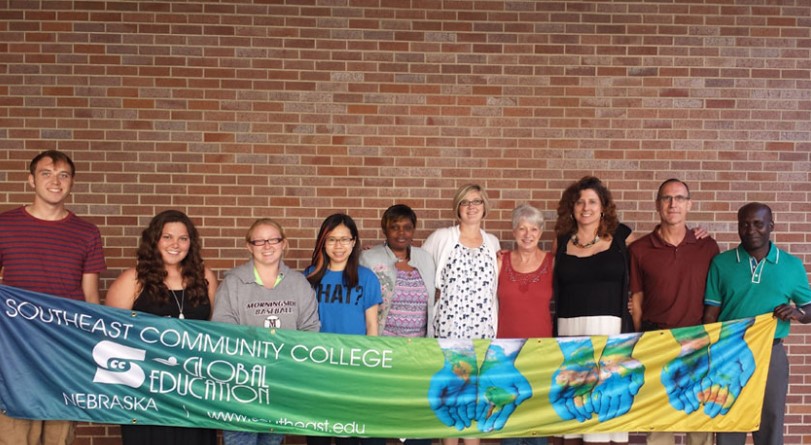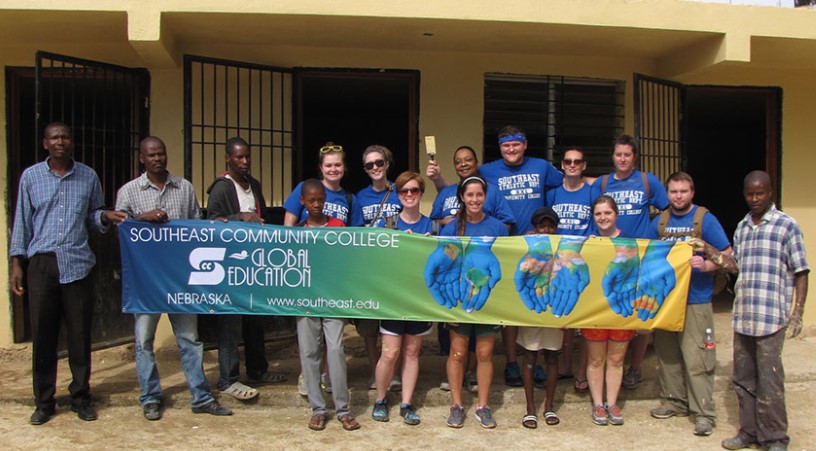Global Education Resources

ACTFL conducts research and helps shape policy, but also offers many useful resources for
classroom teachers, including workshops and Webinars promoting foreign language and
cultural studies.
ACTFL conducts research and helps shape policy, but also offers many useful resources for
classroom teachers, including workshops and Webinars promoting foreign language and
cultural studies.
The Annenberg Learner site has teacher professional development workshops in many subjects and classroom resources
on cultures and global issues.
The Asia Society Partnership for Global Learning is an Asia Society membership network that connects state and district decision makers,
school leaders, teachers, university faculty, and other stakeholders. Many curriculum
resources that can be used in a variety of disciplines and an annual professional
development conference are offered.
The Choices Program at Brown University's Watson Institute for International Studies strives to strengthen
the American public's involvement in international issues. It offers a series of curricular
materials that address current and historical international issues. The Choices Program's
Teaching with the News initiative provides online curriculum materials and ideas to
connect the content of the classroom to the headlines in the news. Topics cover a
range of foreign policy and international issues.
The CIA library contains a wealth of information, from unclassified current publications to basic
references, reports and maps. The Library features our most popular publication, The
World FactBook, and our online directory of Chiefs of State and Cabinet Members of
Foreign Governments. It also features numerous documents and articles of historical
significance.
Act!onaid is a guide on how to facilitate and assess active global citizenship in the classroom.
It provides a structure for students to manage their own learning. It allows them
to move from thinking about issues that are important to them, to planning and participating
in action, and to reflect on their performance, and assess their work. A range of
innovative and participatory activities promote a skills-based approach rather than
a content-based approach so they can be used within different subject areas and with
all ages.
iEarn is a non-profit organization made up of more than 30,000 schools in 130 countries.
iEARN empowers teachers and young people to work together online using the Internet
and other new communications technologies. Approximately two million students each
day are engaged in collaborative project work worldwide. Since 1988, iEARN has pioneered
online school linkages to enable students to engage in meaningful educational projects
with peers in their countries and around the world. Online professional development
courses are available.
NCSS and its state and local affiliates offer professional development resources and seminars.
The National Council for Economic Education's International program, Economics International, supported primarily by the U.S. Department of Education,
provides educational assistance to teachers in societies in transition to market economies
and also brings back insights to help teach American students lessons about the global
economy. Instructional guides provide curriculum on international topics in economics
for all grade levels.
National Geographic has innumerable interactive maps, videos and other teaching materials on international
geography and contemporary issues. State Geographic Alliances also provide professional
development in your state.
Peace Corps volunteers and alumni contribute to create learning materials for teachers and students,
including lesson plans, reports from around the world, and in-classroom presentations.
Educators use these materials to teach subjects as varied as language arts, environmental
education and international economics. Others incorporate them into existing study
units or use them as the centerpiece of an interdisciplinary curriculum.
This Red Cross program and related resources facilitates social awareness and civic responsibility
by exploring issues of international humanitarian law. The teacher resources provide
background information on many of the topics and issues and suggest various activities
to conduct with students.
The Smithsonian Institution's online education center offers programs, services and resources for teachers and students.
An easy-to-use Web site allows users to search by topic, academic discipline, grade
band and world region. Online conferences cover a wide variety of topics, including
climate change, space and critical thinking.
World Savvy provides resources for teachers and youth on a variety of global issues. Professional
development institutes and workshops show how to globalize content, and it provides
resources and opportunities for incorporating global issues into your classroom.
